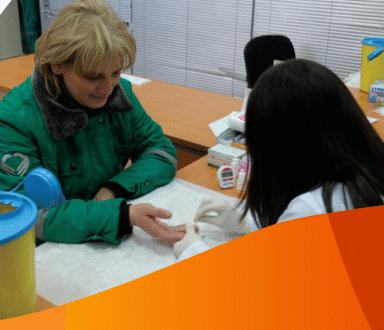Global Awareness and Local Progress in Combating Hepatitis B
World Hepatitis Day, observed on July 28, serves as a reminder of the ongoing global effort to combat viral hepatitis. In 2025, Uganda joined this international initiative, highlighting the urgent need to address Hepatitis B, a preventable yet serious disease that continues to affect many lives, especially in low- and middle-income countries. While public health improvements have been notable across the country, Hepatitis B remains a persistent challenge.
The fight against Hepatitis B has seen encouraging progress through vaccination campaigns, strategic partnerships, and community involvement. Hepatitis B is a viral infection that targets the liver and can lead to severe complications such as cirrhosis and liver cancer if left untreated. It spreads through infected bodily fluids, mother-to-child transmission during childbirth, and contact with contaminated personal items like needles or razors. Given its long-term consequences and high treatment costs, vaccination is the most effective preventive measure.
Since March 2025, Amref Health Africa in Uganda has been implementing the Saving Lives and Livelihoods (SLL) Phase II Project in the Greater Mubende region. This initiative, supported by the Ministry of Health and funded by the MasterCard Foundation through the Africa Centre for Disease Control and Prevention (Africa CDC), has vaccinated 6,719 individuals, including men, pregnant women, and other high-risk groups. This success underscores the power of community-centered healthcare delivery.
The vaccination campaign in Mubende uses an integrated service delivery approach, combining immunization with other primary healthcare services. Alongside Hepatitis B vaccines, individuals also receive Tetanus-Diphtheria, HPV, and Yellow Fever vaccinations, as well as maternal and child health services. This integration ensures that outreach efforts are more efficient and accessible, particularly in hard-to-reach communities. The strategy aligns with the Ministry of Health’s new guidelines on healthcare service integration.
Community engagement has been a cornerstone of this success. Through collaboration with district leaders, sub-county and parish authorities, village councils, and civil society organizations, the project has fostered strong grassroots support. Village Health Teams (VHTs) and frontline health workers have played a vital role in mobilizing communities, raising awareness, identifying unvaccinated individuals, and connecting them to essential services. Their efforts ensure that no one is left behind in the fight against Hepatitis B.
Beyond vaccination, the project is strengthening community resilience against future health threats. It includes training health workers, educating local leaders, improving surveillance systems, and delivering targeted outreaches. In remote and underserved areas, these measures are crucial for saving lives.
A key focus of the intervention has been reaching high-risk populations, such as pregnant women, young people, individuals with chronic conditions, and those in isolated areas. These groups often face significant barriers to accessing healthcare. By prioritizing them, the project helps reduce both the health and economic burden of Hepatitis B treatment, promoting broader health equity.
Despite these achievements, challenges remain. Vaccine hesitancy, misinformation, and limited health infrastructure continue to impact vaccine uptake in some districts. However, through ongoing community dialogue, trust-building, and showcasing the benefits of the vaccination campaign, public confidence is growing. Local leaders and health workers have been instrumental in addressing myths and encouraging vaccine acceptance.
As we commemorate World Hepatitis Day 2025, it is clear that eliminating viral hepatitis as a public health threat by 2030 is achievable. Uganda’s progress in regions like Mubende demonstrates this potential. Sustaining this momentum requires continued investment in vaccines, health workforce development, community education, and data-driven health system monitoring.
Looking ahead, efforts must focus on expanding Hepatitis B vaccination to additional regions, strengthening routine immunization, and ensuring every Ugandan has access to life-saving vaccines. The message is simple but urgent: get tested, get vaccinated, and help spread accurate information about Hepatitis B. Empowering communities to take charge of their health is essential for lasting change.
On behalf of Amref Health Africa and all partners, heartfelt appreciation is extended to the Ministry of Health, district health teams, VHTs, and frontline health workers. Your dedication is saving lives and securing the nation’s health.
Every Ugandan is encouraged to seize the opportunity to get vaccinated against Hepatitis B, not just for personal protection, but for the health and well-being of families and communities.
In conclusion, the progress achieved in the Greater Mubende region is a powerful example of what can be accomplished through expertise, resources, and grassroots engagement. With sustained commitment, a Uganda free from vaccine-preventable diseases like Hepatitis B is within reach. Let us continue working together to protect Uganda’s future.
 Info Malang Raya Its All About World News
Info Malang Raya Its All About World News



